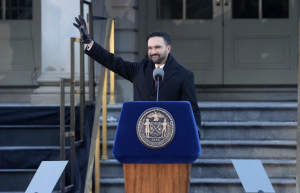Former U.S. House Speaker Dennis Hastert, who is awaiting sentencing after pleading guilty for making hush-money payments, suffered a stroke and has been hospitalized for several weeks, his lawyer said Thursday.
"I am confirming that during the first week of November our client Dennis Hastert was admitted to the hospital," Hastert attorney Tom Green said in a statement, according to Politico. "Mr. Hastert has suffered a stroke and has been treated for Sepsis. While in the hospital, two back surgeries were performed."
The family is expecting Hastert to be released before he is due to be sentenced in February.
"We are hopeful that Mr. Hastert will be released from the hospital in the early part of the new year," Green said. "The family very much desires that during Mr. Hastert's continued hospitalization his privacy will be respected."
Hastert's hospital stay had been the subject of rumors for some time, but a statement from a representative was forced by a letter from one of his friends, former ServiceMaster Global Holdings CEO William Pollard, who sought leniency from U.S. District Court Judge Thomas Durkin.
"In light of his recent hospital stay, I would hope that probation in lieu of confinement would be considered in determining his sentence," Pollard wrote in the Dec. 11 letter made public by the court on Wednesday.
Hastert pleaded guilty on Oct. 28 to a felony count of illegally structuring cash withdrawals to evade bank reporting requirements. He is scheduled to be sentenced Feb. 29 for admitting that he agreed "to compensate for and keep confidential his prior misconduct against" an unnamed individual, believed to be a former student and wrestler when Hastert was a high school teacher and coach, the Associated Press reported.
Beginning in June 2010 and for about two years, Hastert made 15 cash withdrawals of about $50,000 apiece every six weeks, according to the plea agreement, the Chicago Tribune reported. Hastert was apparently unaware of the regulations regarding reporting cash withdrawals beyond $10,000. Once bank officials warned him that large withdrawals must be reported, he began illegally structuring the transactions in amounts lower than $10,000. In all, he made 106 withdrawals totalling nearly $1 million.
© 2026 HNGN, All rights reserved. Do not reproduce without permission.








